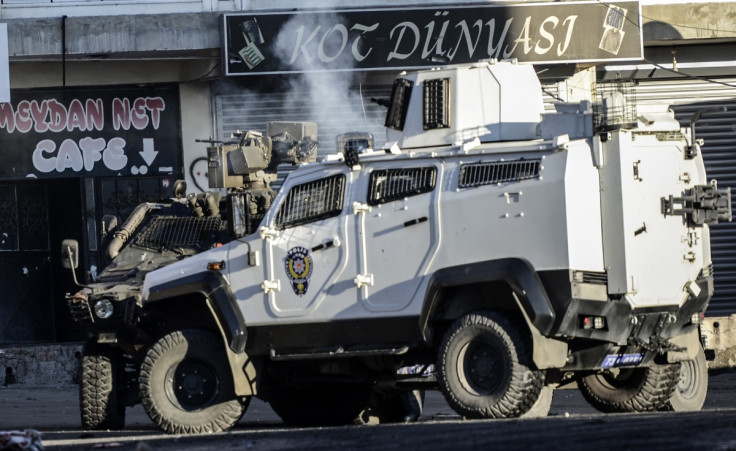Turkey: Dozens 'burned to death' in basement by government attack, say Kurdish activists

Turkish forces fighting Kurdish insurgents in the south east of the country are said to have carried out the massacre of dozens of people who were holed-up for days in the basement of a building in the town of Cizre, allege Kurdish activists.
Turkish authorities reported that security forces killed 10 militants from the Kurdistan Workers' Party (PKK) in an overnight raid in the border town – which has been in a state of lockdown since mid-December – as Ankara launched a military crackdown in the Kurdish-majority south east following a series of attacks on both the police and army.
"Ten terrorists were neutralised during ongoing operations against the members of the separatist terror organization in the Cizre district," said the Governor's Office of Cizre's Şırnak province. The statement downplayed a report by a state-run news outlet, which said that 60 PKK militants were killed as the military raided the basement of a building. Kurdish activists instead put the death toll at 30, saying the victims were all civilians that had been "burned to death". Verifying the conflicting information was virtually impossible as round-the-clock curfews have been imposed on the town, and in some cases communications lines cut.
At the end of January dozens of people took shelter in the basement of several separate buildings amid heavy clashes and shelling outside. Rights groups condemned Turkish authorities for failing to allow medical teams to reach at least 12 seriously wounded people part of group of more than 20 that were stranded at one location.
"This is a desperate situation: injured individuals, some of whom are apparently bleeding heavily, are at grave risk of dying if they do not urgently receive medical care," Amnesty International's Turkey Researcher Andrew Gardner said on 28 January. "Lives are dangling in the balance and it defies belief that the authorities cannot find a solution. Whatever the circumstances which led to these men's injuries, they have a right to receive life-saving medical treatment and the state should facilitate, not impede, such care."
Despite the appeal the stand-off continued into February, with those inside who reportedly refused to surrender fearing they would be arrested and tried as terrorists. After a few days contact with the group were lost. Another 52 people were also holed up with the decomposing bodies of their companions in the basement of a nearby building, according to members of the pro-Kurdish HDP party. The 8 February raid was understood to have targeted this second group, HDP Izmir deputy Ertuğrul Kürkçü told IBTimes UK citing local sources.
"The number of corpses found in the building is around 30," he said, maintaining the victims were unarmed civilians "They were not carrying weapons. They had just sought shelter for security purposes in the basement of a building".
Ertuğrul added they had been burned to death and there was no information about possible survivors. The building had been under siege and a fire had previously broken out after tank shelling, HDP Şırnak deputy Faysal Sarıyıldız told Kurdish news agency ANF. "We have no clear information yet but such a savagery might have taken place after a continued denial of retrieval and hospitalisation of the trapped people. If such a thing has occurred, it will mean a very big massacre," he said.
Large explosions followed by gunfire were reportedly heard in the area as the military operation unfolded. Turkey's Cumhuriyet daily said the basements of the five buildings were targeted.
At least 224 civilians, including 42 children and 31 women have been killed in clashes since curfews started to be imposed in August 2015, after a ceasefire between the outlawed PKK, which is considered a terrorist group also by the US, and Ankara collapsed, according to the Human Rights Foundation of Turkey (TIHV).
Amnesty International has claimed the government's military response was marred by "gross human-rights violations" and amounted to a "collective punishment" against the Kurdish population. Meanwhile, President Recep Tayyip Erdogan lashed out at the US over its support of the PKK's proxy in Syria, the YPG – a key Washington ally in the war against the war against Islamic State (Isis).
Erdogan gave an ultimatum to Washington saying it had to decide whether it wanted Turkey, a Nato member as ally or Kurdish militants. "How can we trust you? Is it me that is your partner or is it the terrorists in Kobane?" he said. The warning came after US envoy Brett McGurk went across the border to Kobane to meet representatives of the YPG's political wing, the PYD.
© Copyright IBTimes 2025. All rights reserved.






















